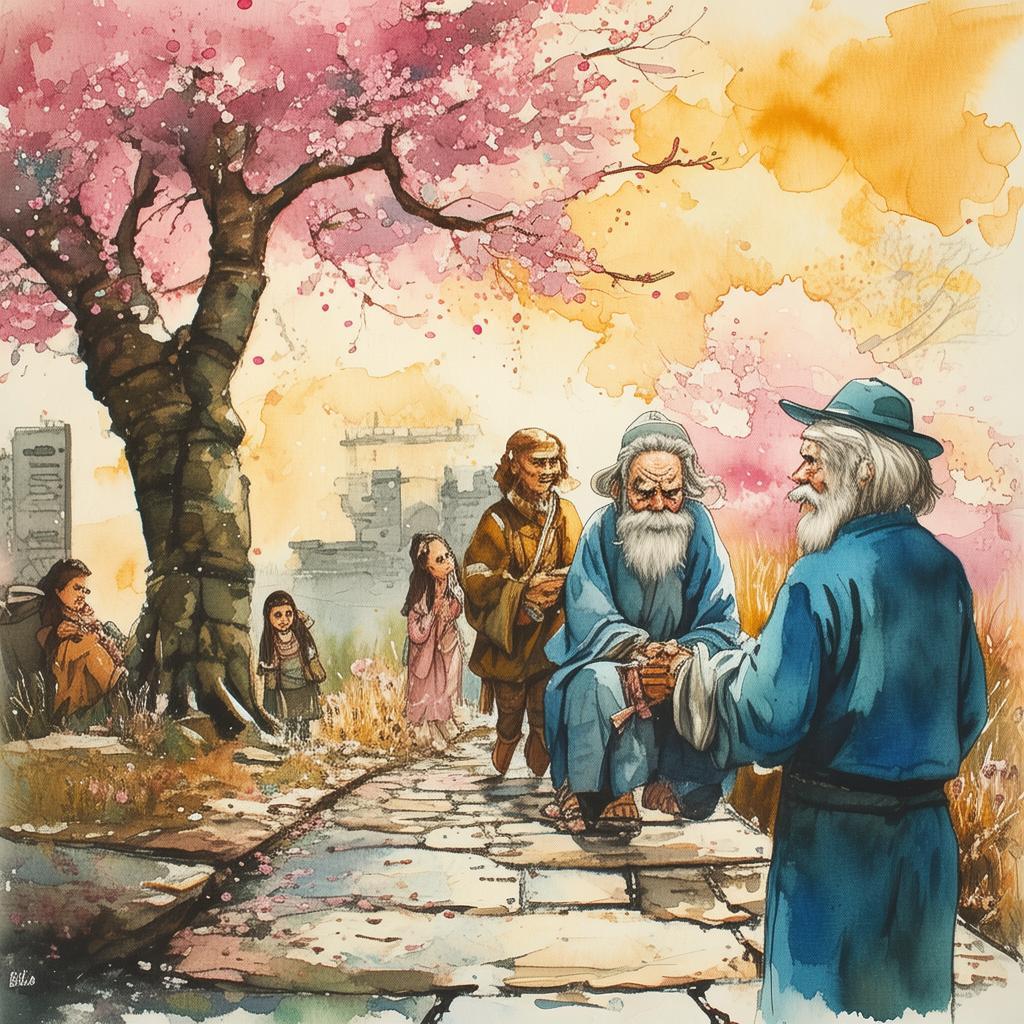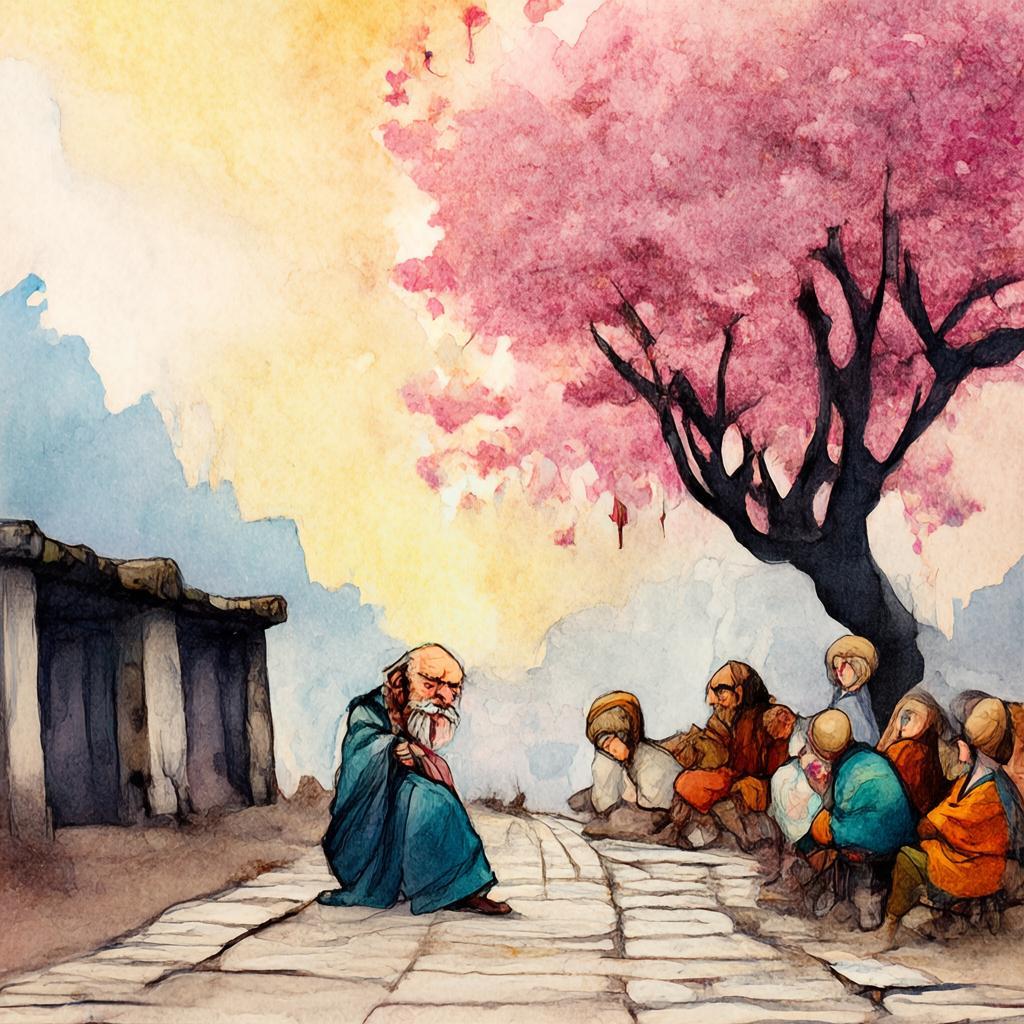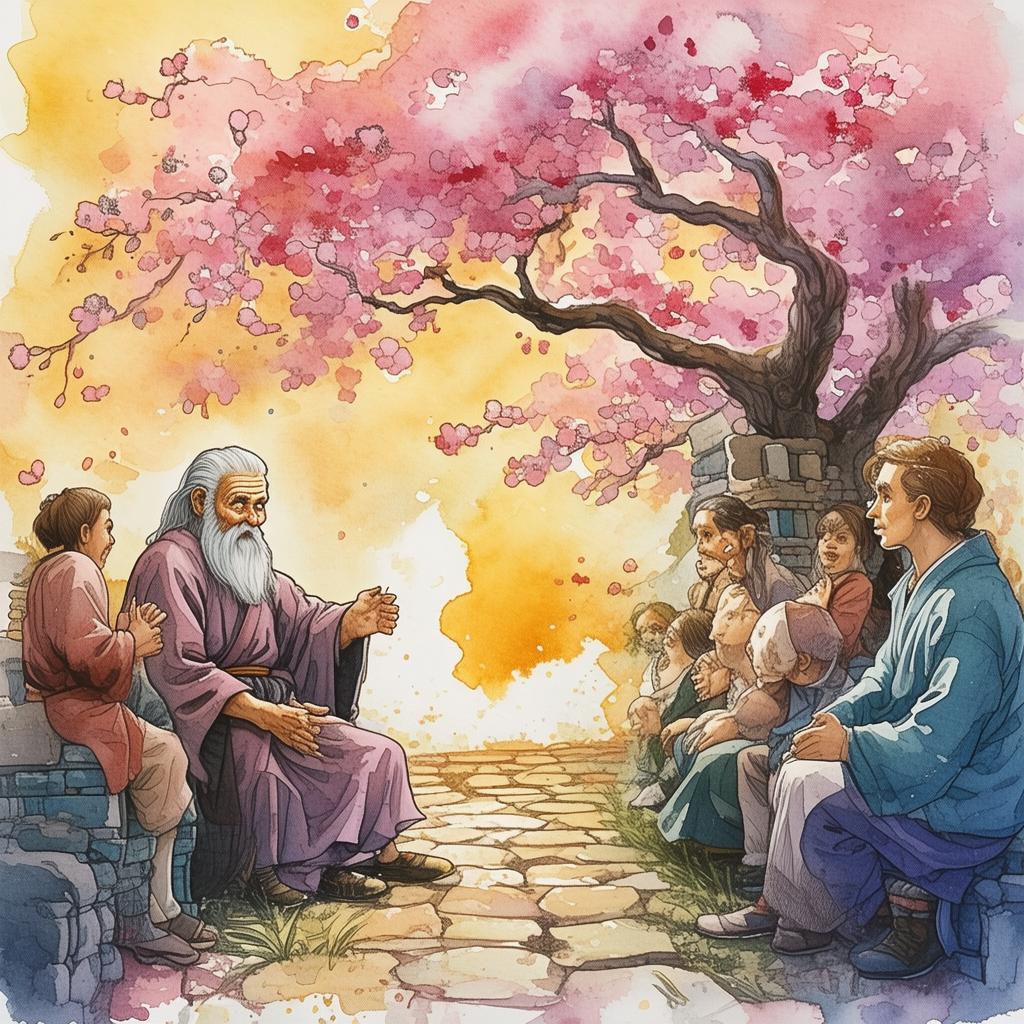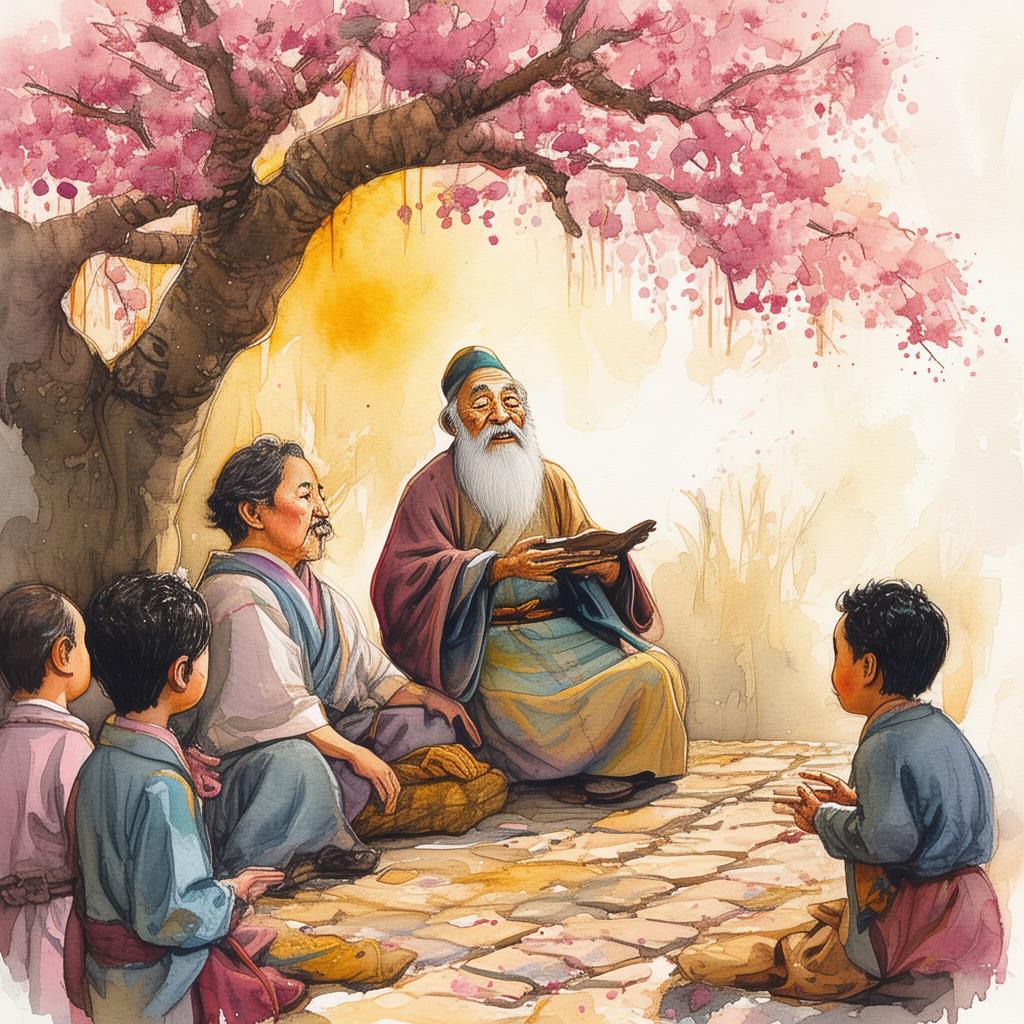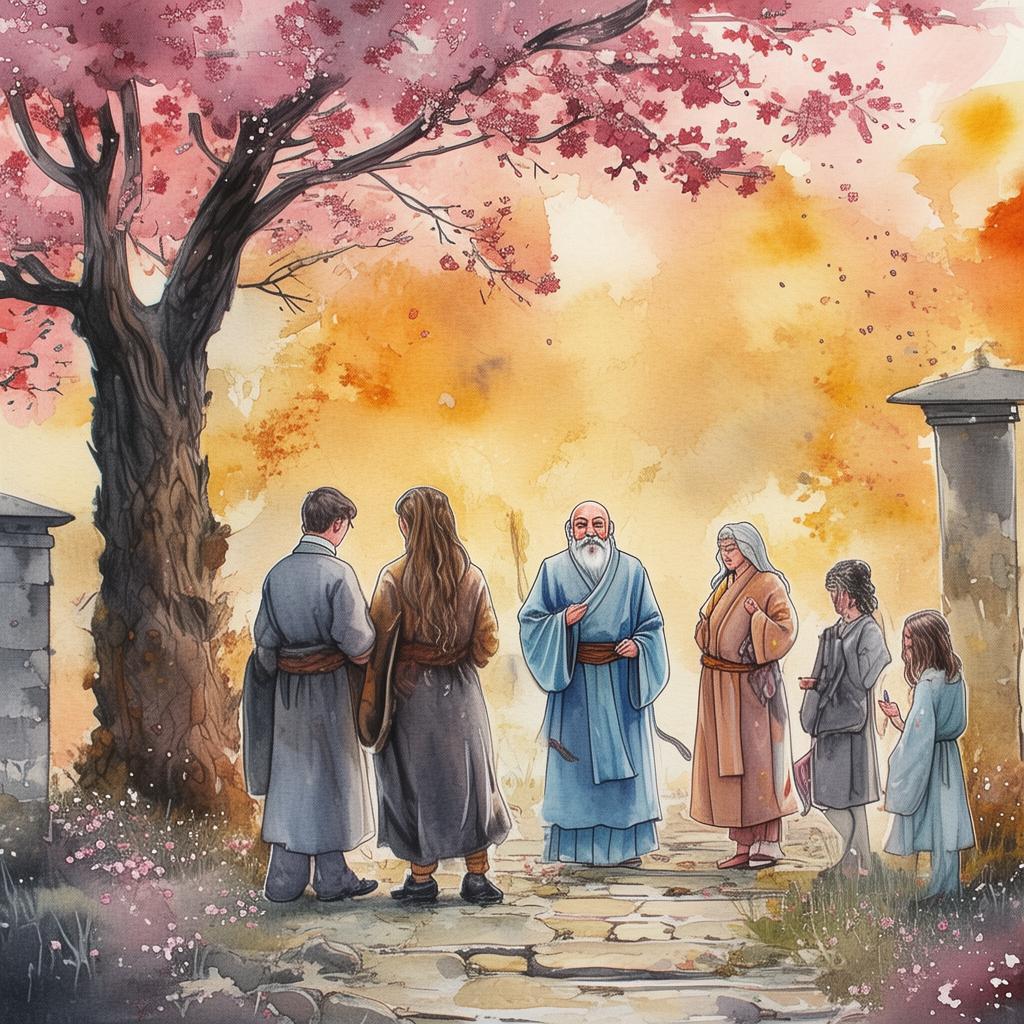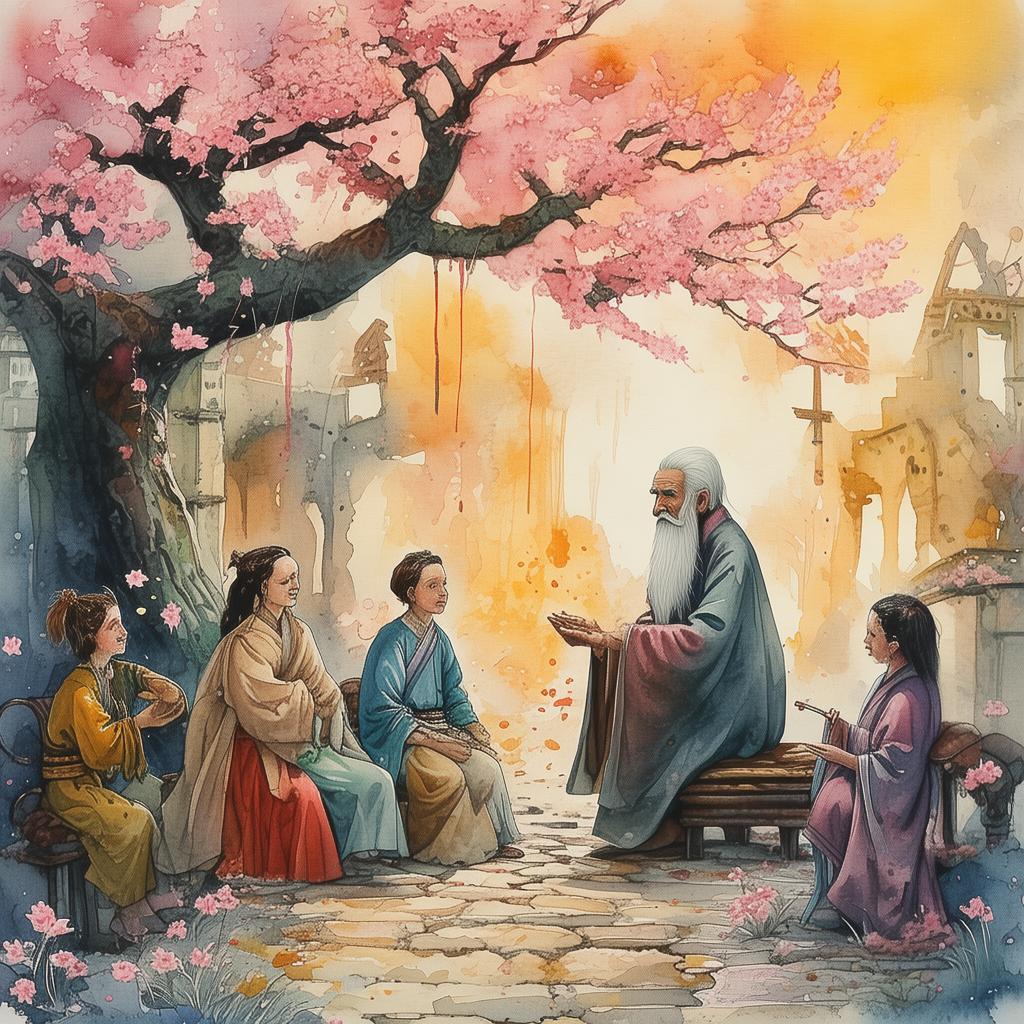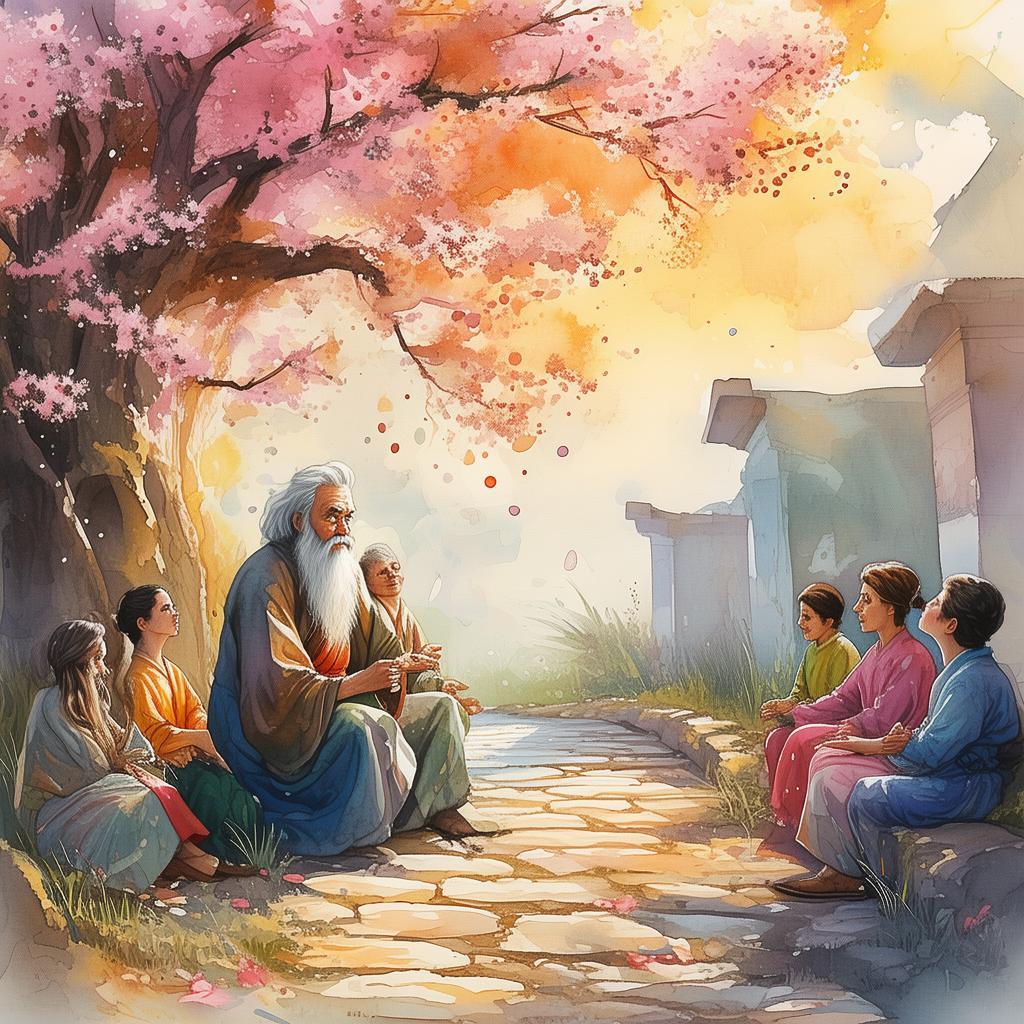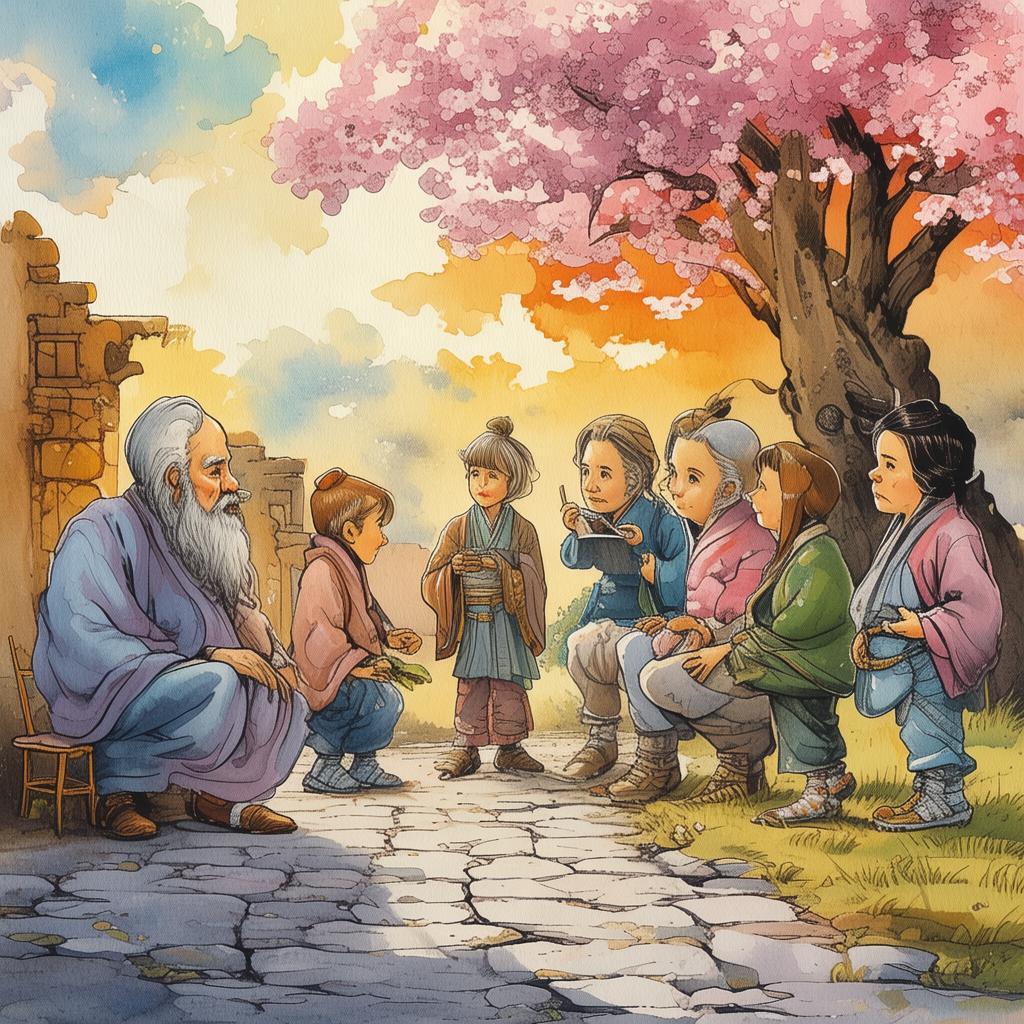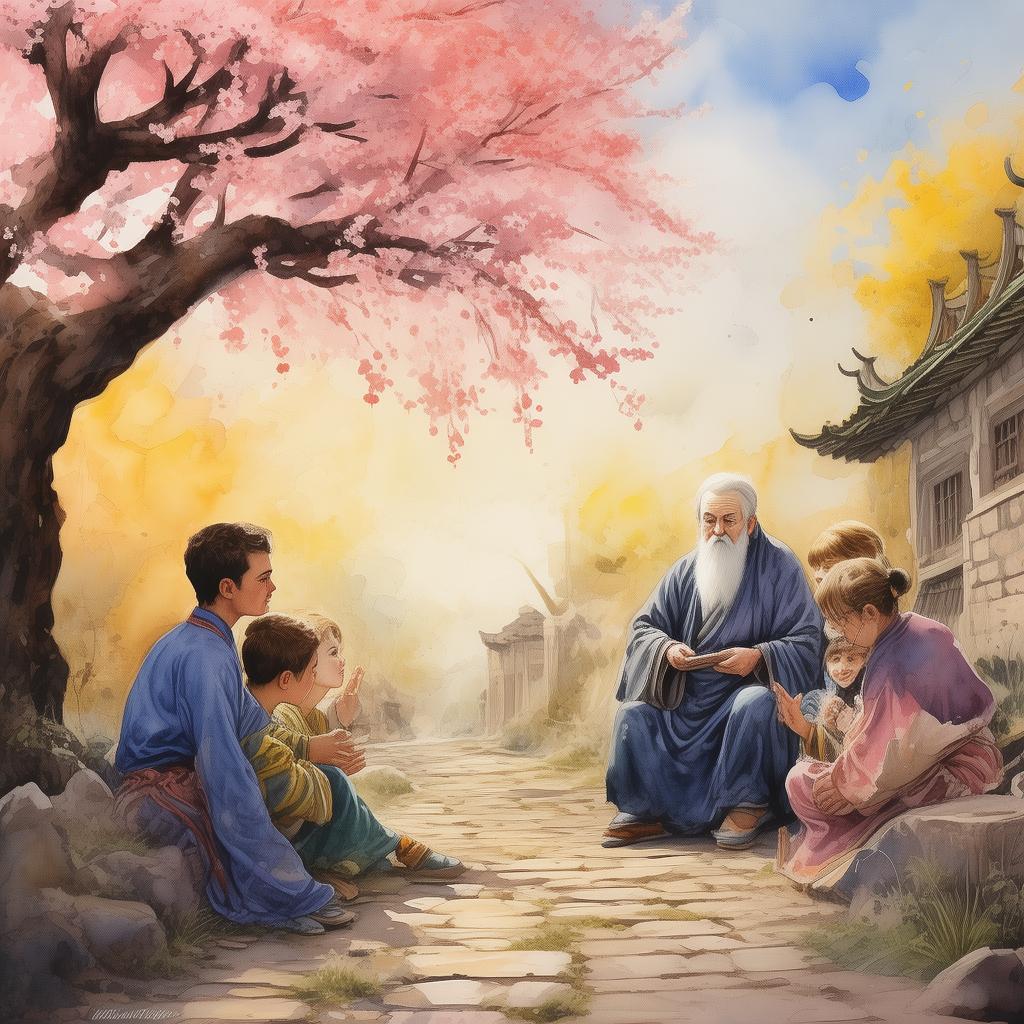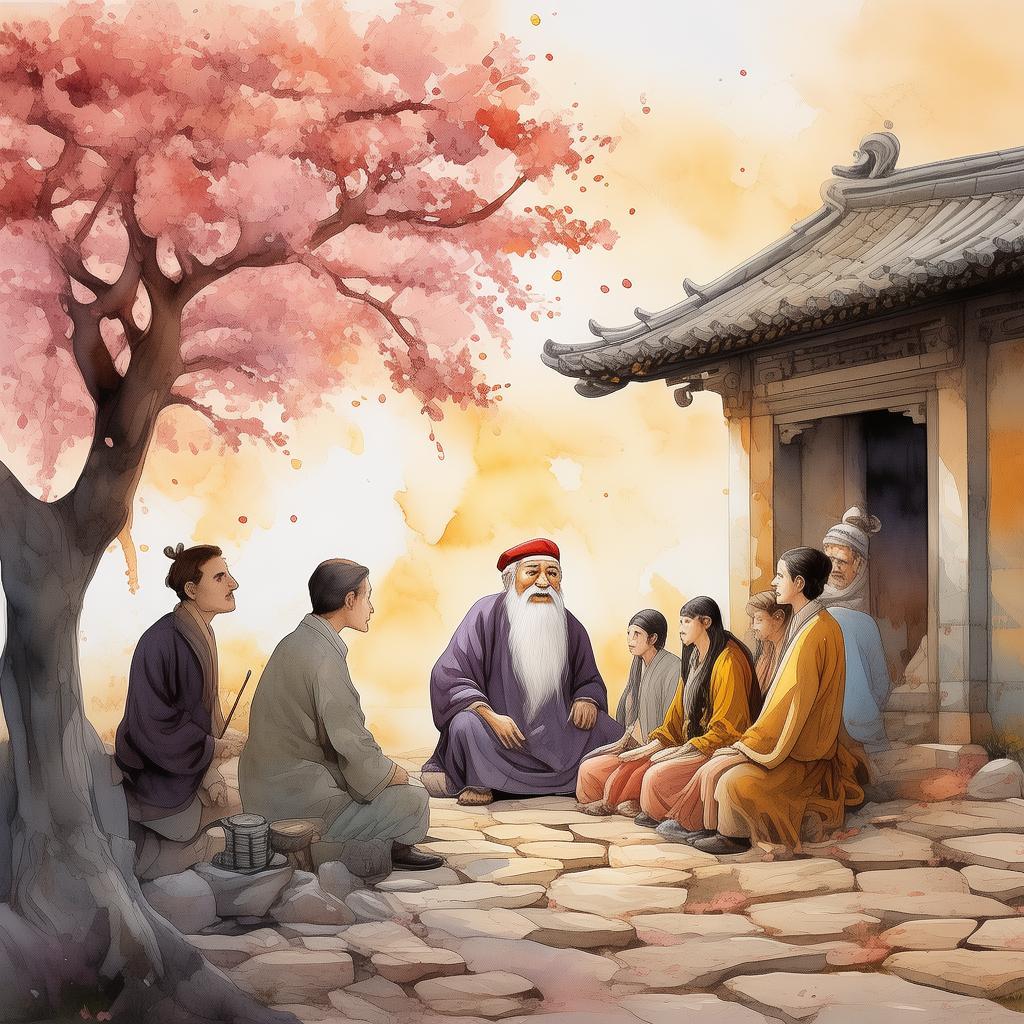The Bard's Ballad of the Bartered Bride: The Bliss of Ballads and Barter
In the heart of ancient China, where the whispers of the wind carried tales of old, there lived a young bard named Ming. Ming was not just any bard; he was a man of great talent and a heart full of dreams. His melodies could stir the soul, and his words could move mountains. Yet, in a world where the value of a person was often measured by their wealth or status, Ming's life was one of quiet obscurity.
Ming wandered from village to village, his only possessions a lyre, a bamboo scroll, and a heart filled with longing for a life beyond the confines of his own village. He was known for his ability to weave ballads that captured the essence of the human spirit, but he had never found the love he longed for.
One day, as Ming wandered through a quaint village, he heard the news of a bartered bride. A young woman named Li was to be wed to a wealthy but cruel landowner, a man who cared little for her. The villagers spoke of Li's sorrow and her longing for a different fate. Ming, moved by the girl's plight, decided to act.
He approached the village elder, a wise and respected figure known as Master Hua. "Master Hua," Ming said, "I have heard of the bartered bride. Is there a way I might help this poor girl?"
Master Hua, with a knowing smile, replied, "Ming, you are a bard of great talent. Perhaps you could compose a ballad that speaks to her heart, that might change her fate."
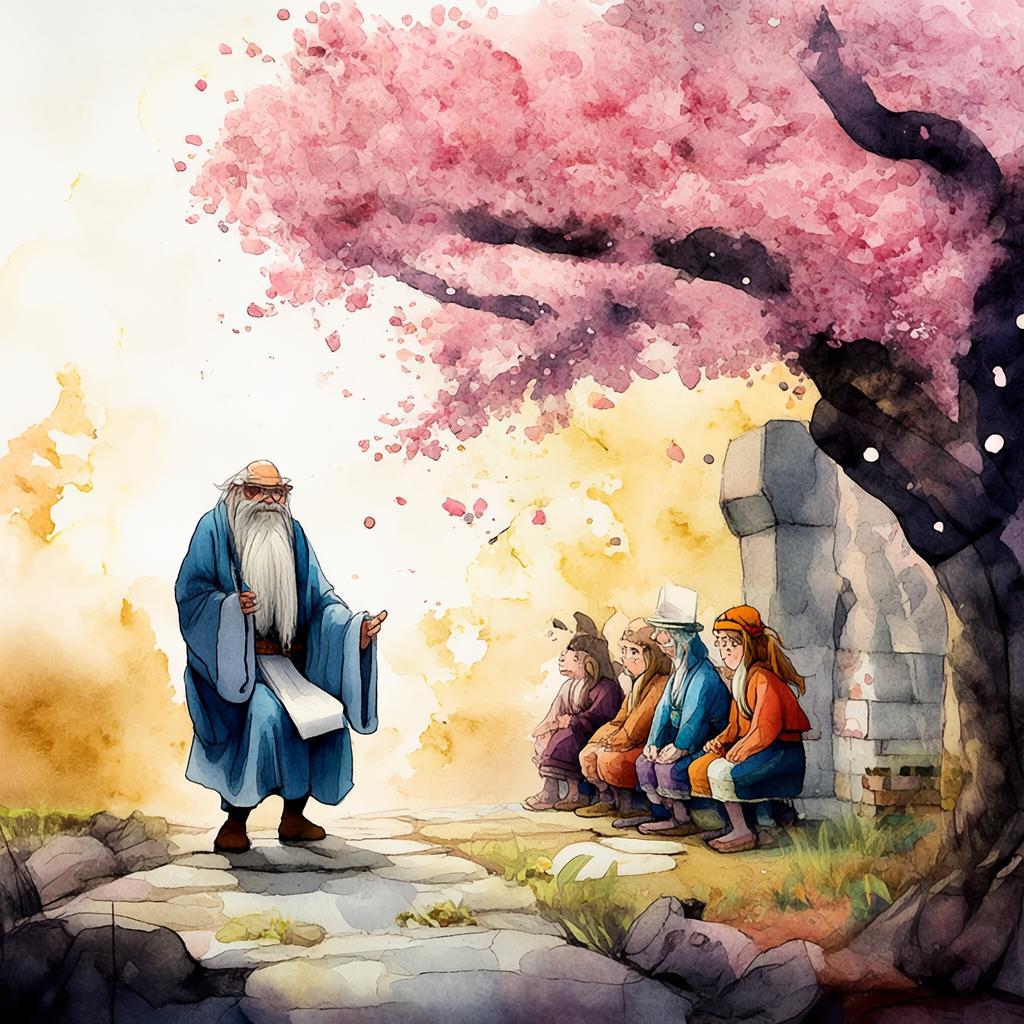
Ming took on the task with all his might. He spent days and nights crafting a ballad that would not only tell Li's story but also convey her longing for freedom and love. When the day of the wedding arrived, Ming stood before the crowd, his lyre in hand, and began to sing.
The ballad was a masterpiece, its words resonating with the villagers. It spoke of Li's pain, her dreams, and the hope that love could still find a way. The villagers were moved to tears, and even the landowner, who had never shown Li a kind word, felt a stir in his heart.
As the song reached its crescendo, Ming turned to Li and whispered, "Li, your voice is the missing piece of my ballad. Sing with me."
Li, who had never sung in public, was hesitant but felt the power of Ming's words. Together, they sang of love and freedom, of a life that could be theirs if only they dared to dream.
The landowner, touched by the ballad and the purity of Li's voice, decided to release her from their contract. Li, with tears of joy, thanked Ming, and the two found themselves standing side by side, their hearts filled with hope.
Ming and Li's love story quickly spread throughout the land, and their union became a symbol of hope and the power of love. Ming's ballad, "The Bliss of Ballads and Barter," became a classic, and his words were etched into the hearts of many.
The tale of Ming and Li became a legend, a story that showed that even in a world where love was often bartered away, true love could still find a way. Ming's ballads became a beacon of hope, a reminder that the human spirit, when united, could overcome even the darkest of times.
Through his music and his actions, Ming had not only found love but had also become a catalyst for change. The bard had not just composed a ballad; he had crafted a symphony of hope that would resonate through the ages.
✨ Original Statement ✨
All articles published on this website (including but not limited to text, images, videos, and other content) are original or authorized for reposting and are protected by relevant laws. Without the explicit written permission of this website, no individual or organization may copy, modify, repost, or use the content for commercial purposes.
If you need to quote or cooperate, please contact this site for authorization. We reserve the right to pursue legal responsibility for any unauthorized use.
Hereby declared.
